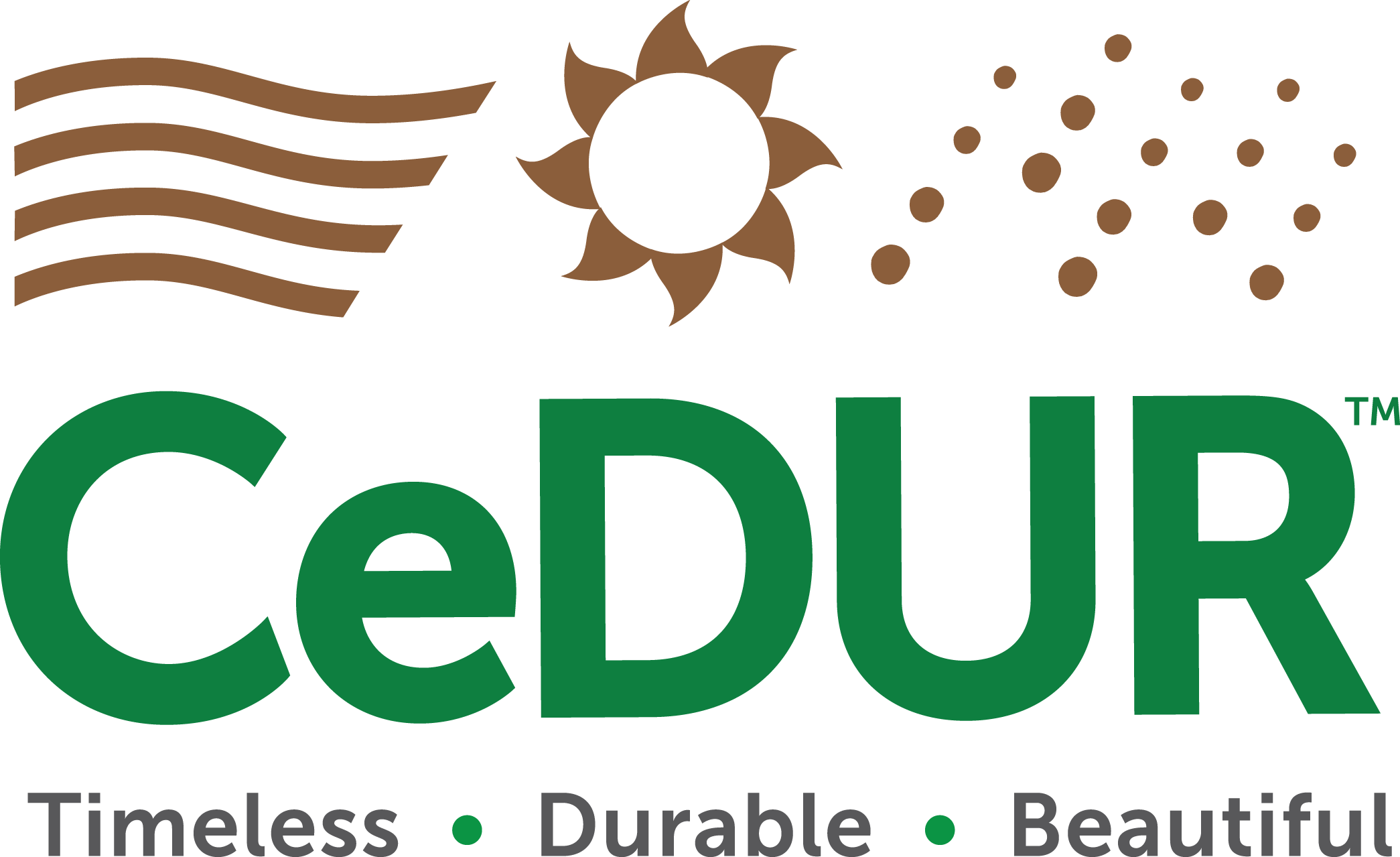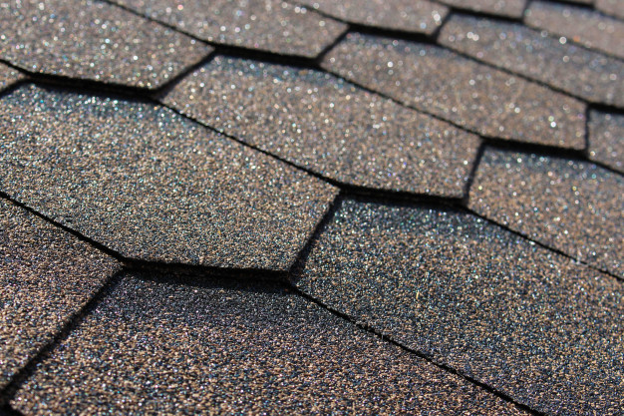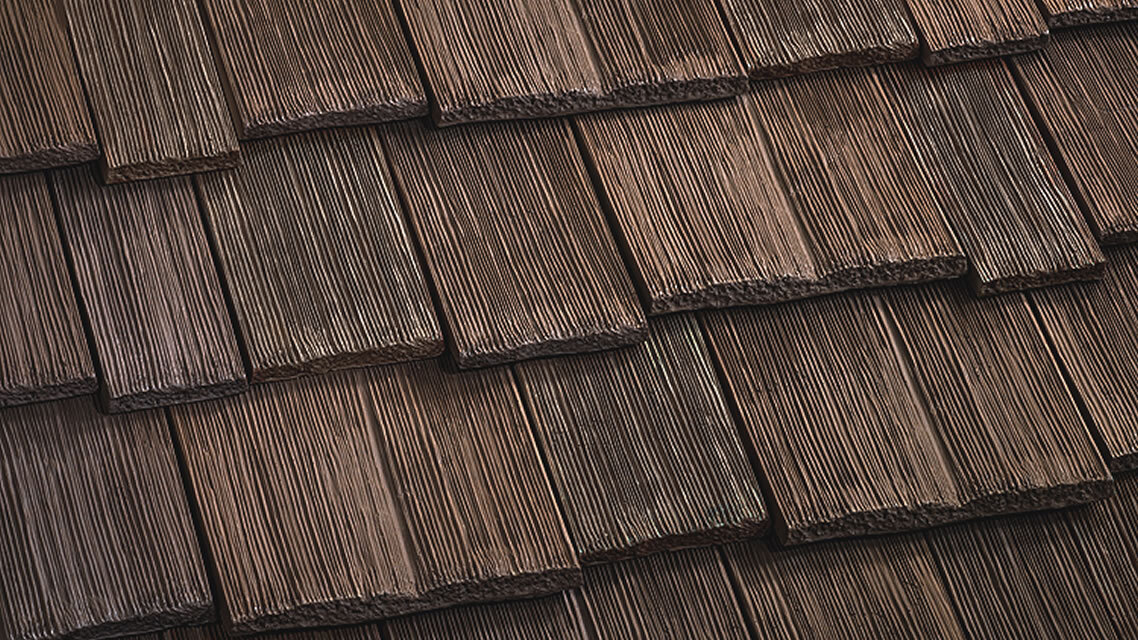Asphalt vs Fiberglass Shingles | Which is Best?
Let’s examine the differences between fiberglass shingles and asphalt shingles.
The sheer number of available roofing options can be overwhelming. Even with options like asphalt shingles, there are two types: organic asphalt and fiberglass. Both are asphalt shingles and come in architectural and three-tab styles, and they each have pros and cons to consider. Here is a breakdown of asphalt vs. fiberglass shingles, so you know what each has to offer:
Asphalt Shingle Pros
Better Durability: Because organic asphalt shingles contain more asphalt than fiberglass shingles, they are more durable, and as a result, they last longer than fiberglass. Their added durability also means that they are more likely to last through severe storms without getting blown away or damaged.
Best for Colder Climates: For homes in areas where winters can be harsh, organic asphalt shingles are the better option.
Asphalt Shingle Cons
Warping: One major disadvantage of organic shingles is that they absorb more water. As a result, they are more prone to warping, which is not just a cosmetic issue. Warping can also lead to weakened shingles that do not protect your home.
Heavier: While having more asphalt makes organic asphalt shingles more durable, it also makes them heavier. This means that they are more difficult to install and will add additional weight to your home's structure. The bigger your roof, the heavier it will be.
Less Fire Protection: Because they are usually paper-based, with organic asphalt shingles, you actually end up with less fire-protection. They are not the best choice for areas that are prone to wildfires since they will not provide the necessary level of safety.
Cost: Another disadvantage of organic asphalt shingles is the cost. They cost slightly more than fiberglass shingles.
Fiberglass Shingle Pros
Lighter in Weight: Because they contain less asphalt, fiberglass is thinner and lighter. This makes them easier to carry and install.
More Fire Resistant: Fiberglass shingles provide more fire resistance.
Cost: Fiberglass shingles cost less than organic asphalt. The lighter weight also means it costs less to install them.
More Environmentally Friendly: Since they contain less asphalt, they are a more environmentally friendly option.
Fiberglass Shingle Cons
Lower Durability: Unfortunately, because they are more lightweight, they aren't as durable, and will need to be replaced sooner.
Not for Cold Climates: Because they are thinner, they are not ideal for a cold climate. They provide less insulation and are more likely to crack from cold temperatures.
An Unexpected Competitor
While many debate asphalt vs. fiberglass shingles, they might forget or not even know about roofing material alternatives. There are many alternative roofing material options, but one of the best are synthetic shingles. One brand to consider is CeDUR Roofing Shakes, a brand that makes beautiful, realistic synthetic cedar shakes.
Benefits of CeDUR Synthetic Composite Roofing Tiles
Durability: CeDUR roofing shakes are made using a unique, highly durable polyurethane material, which means that the shingles will not split, rot, decay, or suffer from insect infestations. They will last longer than both organic asphalt and fiberglass shingles.
Lightweight: CeDUR shakes are incredibly lightweight compared to both organic and fiberglass shingles. They weigh in at just 170 pounds per 100 square feet, so the shipping, handling, and installation of CeDUR roofing shakes is much easier.
Fire Resistant: Unlike organic asphalt and fiberglass shingles, CeDUR shakes have a Class A Fire Rating, the highest fire rating possible. In some cases this makes them safe to use even in wildfire-prone areas, like California, which cannot be said about asphalt and fiberglass shingles.
Wind and Impact Resistance: Although CeDUR roofing shakes are lightweight in their construction, they hold up incredibly well. They can withstand winds up to 115 miles per hour, and even offer a Class 4 Impact Rating, the highest rating possible.
Energy Efficient: CeDUR roofing shakes have an R-Value above 2.0. This means the roof is a bit more insulating than other materials, which helps prevent the escape of hot and cold air, allowing your home to maintain a better-regulated temperature.
Realistic Cedar Look: CeDUR shakes are molded from real cedar shakes, giving them an incredibly realistic appearance. They allow homeowners to have a unique roof, without the worries that come with traditional cedar shakes.
Low Maintenance: The best feature that CeDUR roofing shakes offer is that it is a low maintenance option. Once it is installed, there is virtually nothing else to do. You will not need to do routine repairs or any other type of maintenance aside from clearing away debris with a garden hose and maintaining proper upkeep.
Many homeowners focus on asphalt vs. fiberglass shingles. Mostly, this is because they are the two most common options across the country, and the most well-known. Of course, they each have their benefits and advantages–but why not consider alternative options? There are more options beyond organic asphalt and fiberglass. CeDUR synthetic roofing shakes offer better durability, more safety features, a longer life, and a unique look.



